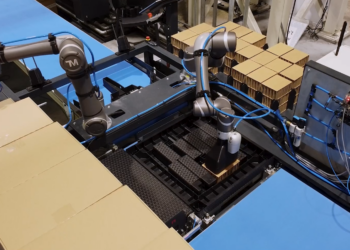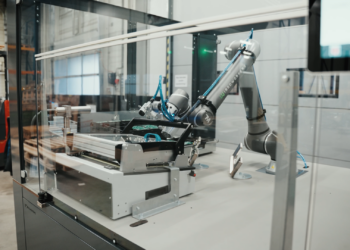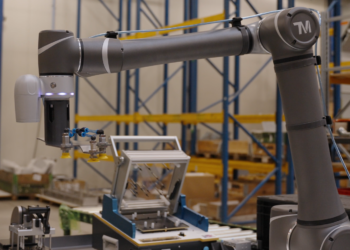The problem: eternal supervision
In Varsseveld, some 230 employees in 'one of the cleanest and smartest factories in the Netherlands' are engaged in the production of quality bicycles. The tubes and parts for the frames are machined by different machines. One of these machines is a CNC lathe, with which tubes or bar material can be processed. A beautiful machine, which unfortunately also had some drawbacks.
In order to increase the production capacity, it was decided to also run the CNC lathe at night. The parts that come out of this machine sometimes contain oil, coolant or other residual material, which must be cleaned thoroughly before it can be used. Because no one was present in the factory during the night, this work was postponed to the next morning. Also, only one type of parts could be produced at night, for the other parts the CNC operator had to be present to manually remove them from the machine.
The solution: a cobot as support
To ensure that production could continue at night and no people were needed to load the CNC lathe, a cobot was deployed. The Cobot at Van Raam independently removes parts from the CNC lathe (shown in the video at 0.14) and cleans them (at 0.17), because sometimes oil or other residue is left behind. Then he puts the parts in a crate (at 0.40). In between, the Cobot cleans itself (at 0.50) and removes residue from the CNC lathe (at 1.02). Because the Cobot removes the products and the residual material from the CNC lathe independently, the lathe can run without a crew. This increases the capacity of the CNC lathe because production can also take place outside of working hours.
Yield: higher production capacity
The use of a collaborative robot on Van Raam's CNC lathe has produced good results. By deploying a cobot, the lathe can run without a crew. In many cases, it is thought that jobs are lost through the use of a cobot. This is not the case at Van Raam. The CNC operator has been given a more supervisory role, allowing the required quality standards to be better monitored.



